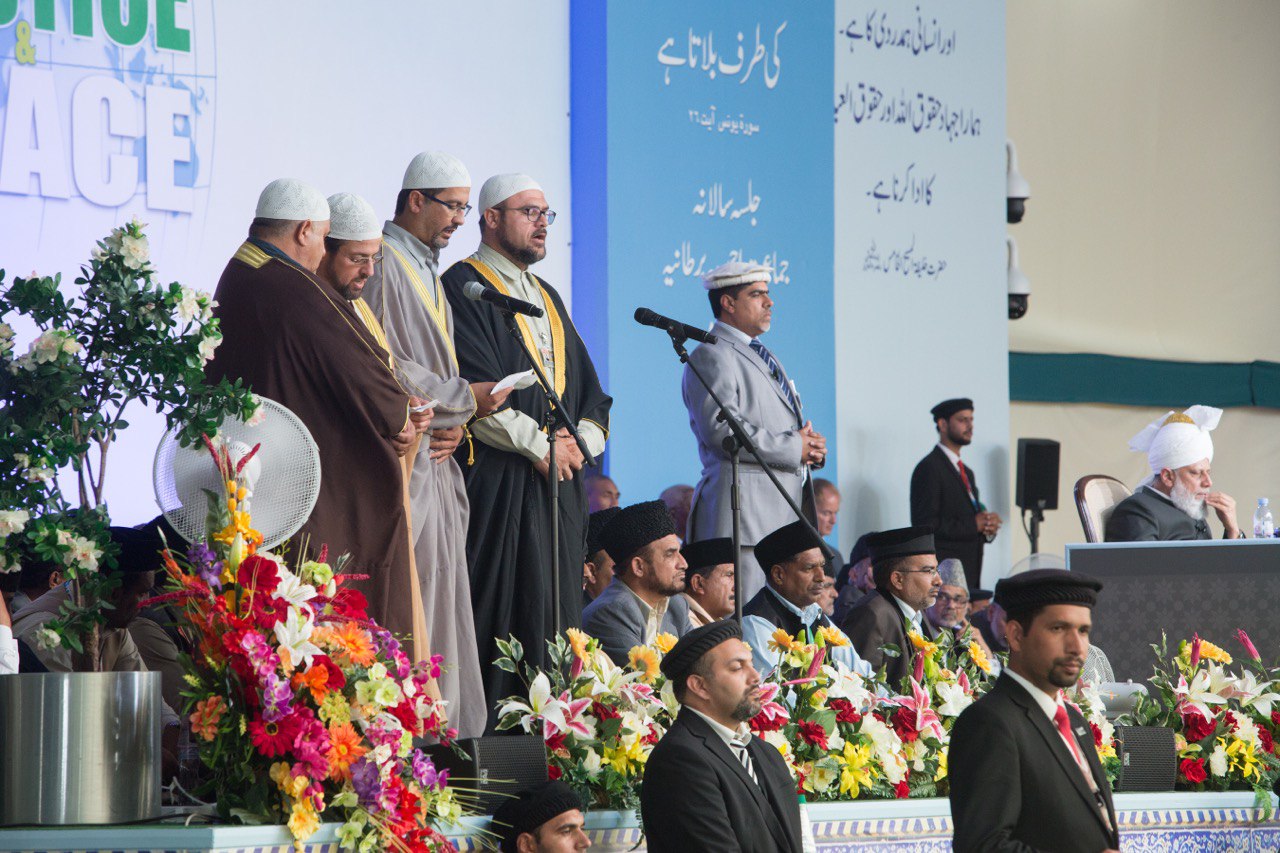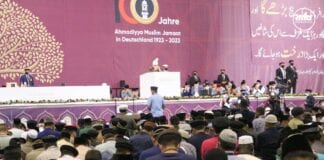
By Aleem Zia
One of the most emotional aspects of the Jalsa Salana takes place as we approach the conclusion of the final session. One does not realise how the last three days have flown by in a spiritual and blessed atmosphere and environment. Nevertheless, even the final moments of the Jalsa are eagerly anticipated. Following the final silent prayer of the Jalsa led by Hazrat Khalifatul-Masih V (aba), guests from the various countries and organisations get the opportunity to recite taranas [poems] in groups in front of their beloved Khalifa. It is a joyous way to cap off a joyous occasion.
Great effort is put into preparing these taranas [poems] from groups of different ages and nations. Groups include under 15’s or ‘Atfal’, those over 40 known as Ansar, an African group, an Arabic group, a Bengali group, a group from the United Kingdom, an international group, a Punjabi group, and a group of students from Jamia Ahmadiyya UK. All these are perfect symbols of how international the Jalsa of the United Kingdom really is.
This concept of reciting poems at events of happiness stems back to the time of the Holy Prophet (sa). After the first Friday sermon that the Holy Prophet (sa) led himself on route to Madina, the Holy Prophet (sa) proceeded to the city. In the fervour of their happiness, the Muslim ladies and girls climbed the roofs of their homes and began singing:
طَلَعَ البَدْرُ عَلَیْنَا مِنْ ثَنِیَّاتِ الْوَدَاعْ
وَجَبَ الشُّکْرُ عَلَیْنَا مَا دَعَا لِلّٰہِ دَاعِ
“Today, the full moon has risen upon us from the valleys of Mount Wada, For
This reason, gratitude to Allah has become forever obligatory upon us”
Just as poetry was used in the time of the Holy Prophet (sa), to express happiness, it is used in a similar way today.
